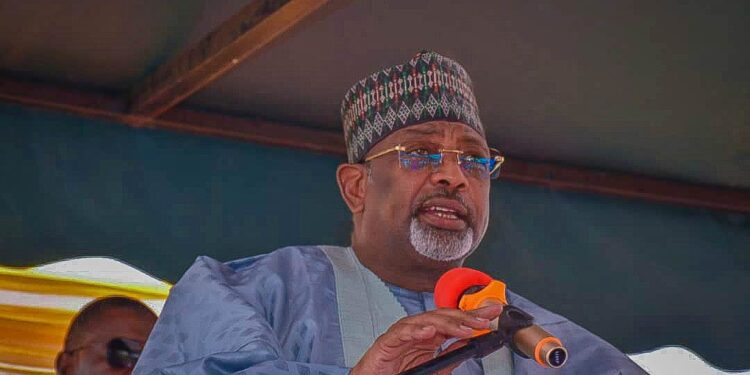The federal government has agreed to subsidise agricultural inputs for farmers by 50% in the commencement of the dry season farming which will be launched on the 25th of November 2023.
This was disclosed in a statement by the Federal Ministry of Agriculture and Food Security published on the X handle of the ministry ad signed by its Technical Advisor on strategic communication.
According to the statement, the Minister of Agriculture, Sen. Abubakar Kyari together with other dignitaries will launch the dry season farming in Jigawa state and will use the occasion to present seedlings, herbicides, pesticides and other inputs to farmers.
The dry farming will be carried out across the 36 states of the country and the FCT.
- It stated, “The Hon. Minister of Agriculture and Food Security, Sen. Abubakar Kyari, will lead several other dignitaries to Hadejia, Jigawa State, where the ceremony will take place. A range of agricultural inputs, including seeds, fertilizer, herbicides and pesticides, will be delivered to farmers at the occasion. The Federal Government is subsidizing the agricultural inputs by 50%.”
The statement further explained that the 2023/2024 dry season farming was being supported by the African Development Bank (AfDB) through the National Agricultural Growth Scheme and Agro-Pocket (NAGS-AP) project.
Use of ICT for program implementation
Also, the ministry will be executing the NAGS-AP project using digital technology as it has already geolocated and registered no fewer than 250,000 farmers.
- It stated, “The implementation is ICT-driven with earlier steps taken to geo-locate farmlands, enumerate, register, and cluster no fewer than 250,000 farmers.”
Targeted crops
Furthermore, the ministry explained that for this year’s dry season farming, it is targeting crops such as maize, rice, sorghum etc with seedlings already imported from Mexico.
- The statement read, “The crops being targeted for the 2023/24 season are wheat, for which seeds have been imported from Mexico; rice, maize, sorghum, soybeans, and cassava. Wheat farmers have been guaranteed off-take of their produce by the Flour Millers Association of Nigeria.”
What you should know
Nigeria’s current food inflation at 31.5% is a source of worry to the federal government which has promised to curb the steadily increasing trend.
In June, President Tinubu declared a state of emergency on food security and moved agriculture to an issue of national security.
However, the action has been of little impact as food prices have increased steadily in the following months after the declaration.
The Food and Agricultural Organisation (FAO) predicts that 26 million Nigerians will face hunger in 2024 because of food insecurity.



























Insecurity, insecurity, insecurity. Most of these farmers are at the mercy of herders destroying crops and killing farmers. If there is security the middle belt alone can feed this nation as it used to be.